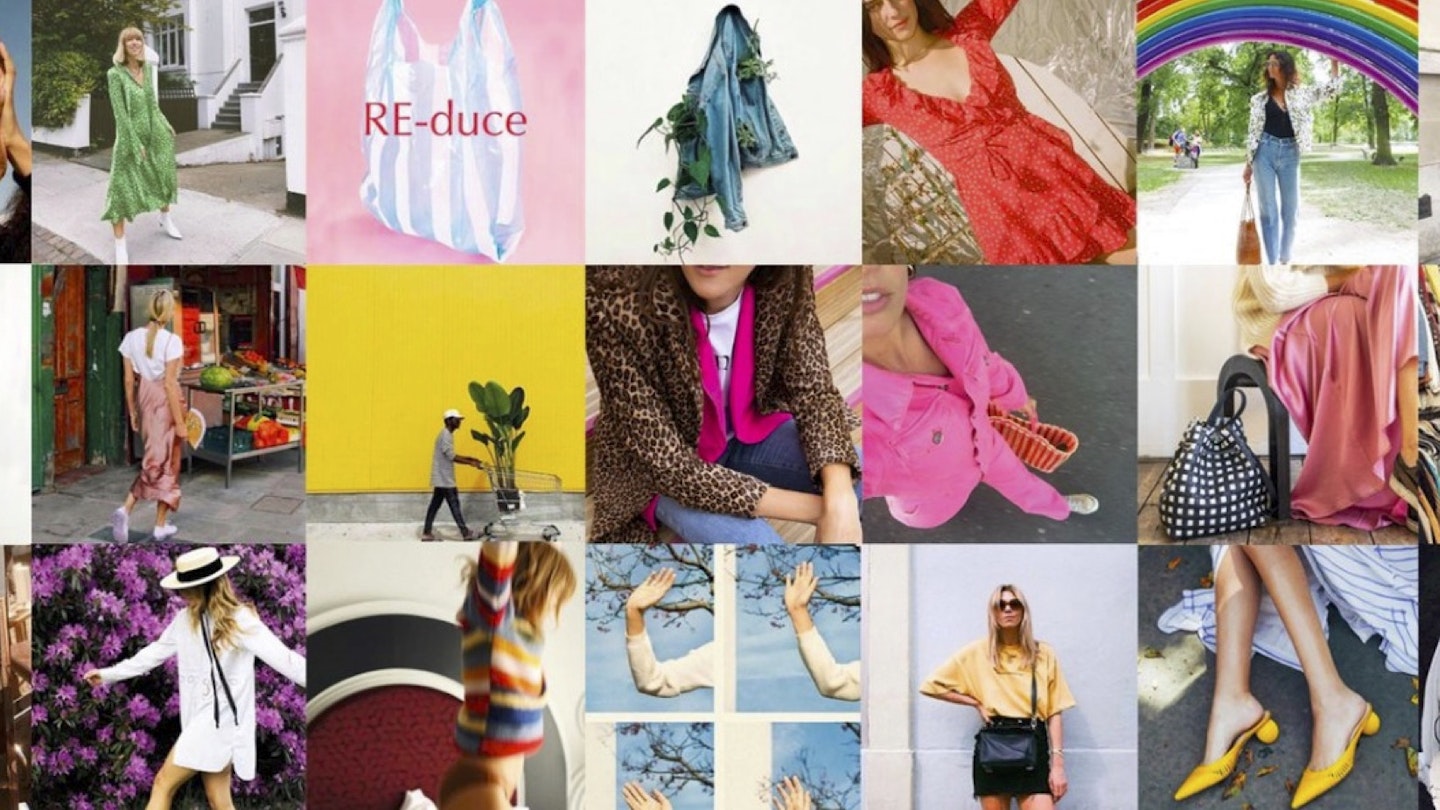Instagram influencers have an unspoken rule: never be pictured wearing the same outfit twice. Ridiculous, right? The sheer quantity of clothes required to make this possible is quite astonishing. No wardrobe, walk-in or otherwise, could hold the strain of that many outfits. While The Resolution Store may not have been born out of the idea to make space in influencer’s cupboards, it’s the secret website that does.
When Pandora Sykes, Camille Charrière and Florae Thomas are finished ‘loving’ their clothes they sell their pieces through this online boutique. Every Insta-famous fashion label is accounted for and sold at a discount. You can buy Camille’s Balenciaga sock boots (size 40.5 FYI) for £370 (originally £935), her lightly-used Edie Parker evening bag for £353 (original £708) and Syke’s Christopher Kane Crocs for £163 (originally £325). It’s a veritable hunting ground for bargain-priced Ganni and Rixo.
Shopping an influencer’s actual wardrobe is merely a by-product of The Resolution Store's concept. ‘The idea for The Resolution Store was born through a desire to do something about the shocking statistics surrounding waste, in particular, created by the clothing industry,’ explains founders former journo Alicia Waite and creative business consultant Anna Sutton on the website, ‘A fashion garment in the UK lasts an average of 3.3 years before the garment is discarded. Extending the life of a garment from as little as nine months can decrease its environmental impact by 20-30%.’ No wonder their tagline is ‘reduce, revive, resale’.
For many so-called sustainable brands, the concept of conscientious consumption stops at ‘add to basket’. The Resolution Store has a more holistic approach. They’ve partnered with a reusable packaging service called RePack, an eco-friendly garment cleaning service and Traid to ensure any unsold items get fed back into the up-cycled clothing sector. Plus 20 per cent of profits are syphoned off to Labour Behind the Label, which platforms for better working contains in the global garment industry.
Surprisingly, sustainability is a hot topic within the inner-circles of the British fashion press right now. It wasn’t one thing, but a combination that changed the beat of the discourse. It’s not that we didn’t know the clothing industry had a problem, but as a media bubble we willed ignorance. Then Stacey Dooley laid bare the environmental impact of the fashion industry in an unmissable BBC doc, scientists warned that we have 12-years left to slow down global and the Guardian’s Jess-Carter Morley vowed to break the ’No 1 rule of fashion journalism’ (i.e. only discuss pieces that you can actually buy). Call us champagne socialists, but I think this industry has finally found it’s moral compass. Fingers crossed, we’re not too late.
